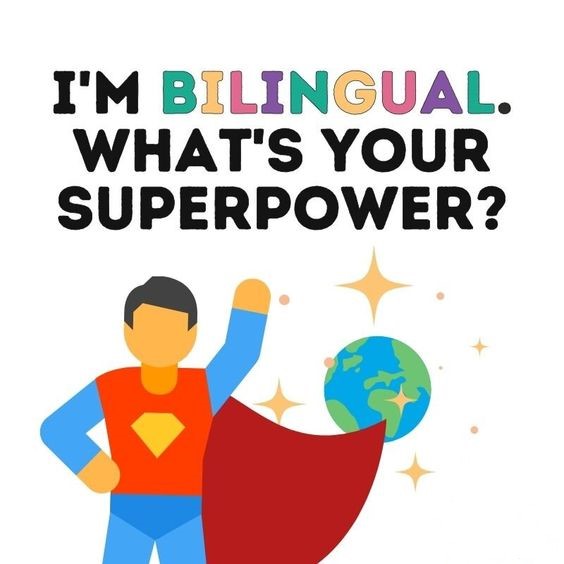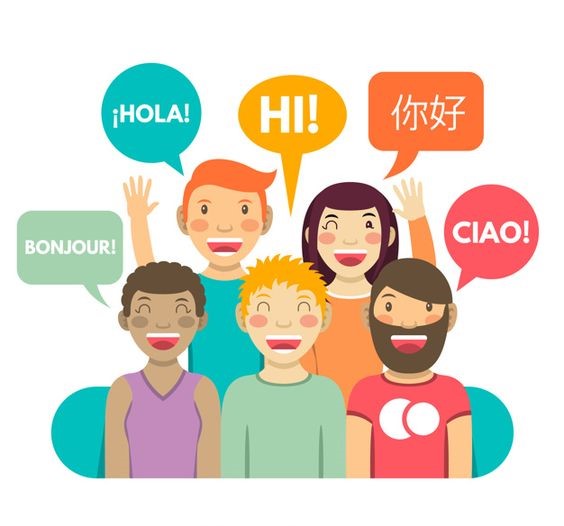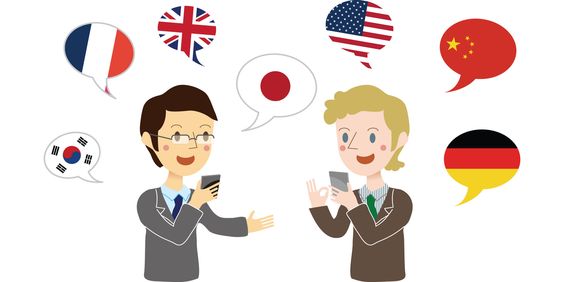What is Bilingualism?
Bilingualism refers to the ability to use two languages.
Bilingualism also refers to the act of using two languages and the ability to do so.
However, there is debate about “how much” proficiency in two languages is required to be considered bilingual.
In conclusion, there is no clear answer.
In fact, it is difficult to accurately measure language skills or measure them using a common standard, making it impossible to strictly define the criteria for being bilingual.
However, there seem to be two main opinions:
- People who can use their second language in work and all aspects of their personal life can be considered bilingual.
- Only people who can use their second language at a native or near-native level can be considered bilingual.
The majority of people around the world are not at a native level but constantly use a second language, so many people hold the second opinion.
Some people also use the term “semilingual” to distinguish those who are not at a native level, but this term is not widely used as it can be seen as discriminatory or exclusive, except in cases of academic research.
Becoming proficient in both languages at a native level requires a fairly specialized environment, such as attending an international school or being in a household with an international marriage, so people who fit the second opinion are quite few in number.
Unlocking the World of Bilingualism: What It Means to Speak Two Languages
Bilingual ability is a wonderful skill that is praised not only in Japan but also all over the world. In Japan, which places increasing value on diversity, it becomes very important to have a proper understanding of bilingualism.
However, the tricky thing is that there is no absolute definition or criteria for being bilingual. Therefore, in order to understand bilingualism, it is necessary to understand actual individuals, rather than the concept.
Before delving into bilingual individuals, let’s briefly touch on other categories than bilingualism.
If someone can only speak one language, they are called monolingual, and if they can fluently speak three languages, they are called trilingual. There is also a term called multilingual, which refers to people who can speak multiple languages.
In the case of trilingual or multilingual individuals, it is rare for them to be equally proficient in all three languages, so there is not much discussion about the criteria for that.
However, when it comes to the definition of bilingualism, there is often debate because there are a few individuals who can use two languages at a native level.
Now, let’s take a look at bilingual individuals from here.
The World of Two Languages
Being able to use two languages is similar to being able to play two musical instruments. It’s like being able to play the piano and the violin. And someone who can fluently speak two languages is like an advanced player in both piano and violin.
Being able to use both languages at a native level is like being a professional in both piano and violin.
It’s natural to say that there are very few people who can use both languages at a native level.
Being able to speak two languages expands the range of experiences one can gain. Especially for someone who has only used one language, being able to use two languages allows them to see things from a new perspective through the wide range of experiences that can be gained from a new language.
Of course, even for someone who can only speak one language, it is possible to gather information through the internet and have various experiences by traveling abroad. However, being able to speak English allows one to gain more information and experiences.
Furthermore, there is a difference in perception between someone who can only speak Japanese or English and someone who is bilingual.
First, even if the content of the conversation is difficult in their native language, it can be tiring. However, compared to their native language, the frequency of difficult conversations is higher in their second language.
Also, there are certain ways of speaking and thinking that may be normal in one language but not in the other, so it can be tiring to try to bridge that gap.
However, because they are constantly facing language, I feel that there are many people who are polite and skilled in their use of language.
How proficient should one be to be called bilingual?

As mentioned before, there is no strict definition or criteria for being bilingual.
Therefore, some people say that only those who are native-level speakers of two languages can be considered bilingual, while others say that being able to use two languages comfortably in daily life and work is enough to be bilingual.
There is no right or wrong answer to this, but the criterion that most people support is being able to live and work in two languages.
In terms of daily life, this would include managing basic needs, engaging in everyday conversations, and communicating in various interpersonal relationships.
In terms of work, this would include general job tasks and communication with people both inside and outside the organization.
To simplify this criterion further, someone who can speak English without any difficulty for several hours to a whole day can be considered bilingual.
At first glance, you may imagine someone who resembles a native speaker, but in reality, this is still not native-level proficiency.
Being able to speak English for any length of time and discuss most topics is considered bilingual proficiency.
In addition, native-level proficiency includes a higher level of speaking speed, depth of content, accuracy, and pronunciation.
If we consider native proficiency as a 10, bilingual proficiency would be around a 6 to 8.
Are you or the people around you bilingual?
As mentioned before, there is no strict definition or criteria for bilingualism. Therefore, individuals can freely judge themselves or others as “bilingual.”
However, many people around the world consider someone to be bilingual if they can use a second language in their daily life.
- Being able to live in English from morning till night.
- Being able to perform work in English, even though it may be challenging at times.
- Being able to have conversations that go beyond routine exchanges.
If you or the people around you feel close to this description, I believe you can confidently call yourselves bilingual.
Some individuals may not have a high level of English proficiency, but they can do everything mentioned above. On the other hand, some individuals may have a high level of English proficiency but lack confidence and cannot do everything mentioned above.
It is up to you whether you want to call such individuals bilingual or not.
Furthermore, being bilingual is only a current state.
Many people who used to be bilingual in the past are no longer bilingual (cannot speak the language).
Since there is no strict definition or criteria, if you or the people around you are unsure whether you are bilingual or not, I suggest choosing the option that seems beneficial for yourself or the other person.




